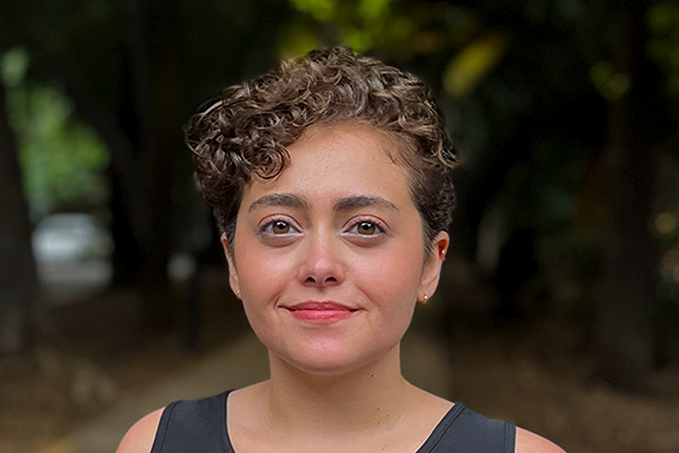Alejandra Rios

Biography
Alejandra Rios is a Master of Urban and Regional Planning and Master of Latin American Studies student at UCLA. She focuses on transportation equity, mobility justice, and environmental justice issues. Her current research interests include learning about extreme commutes in the L.A. region as well as transportation safety concerns for gender and sexual minorities in Mexico City. Alejandra hopes to combine her background and skills to help create accessible, affordable, and safe transportation spaces for historically underserved and disinvested communities.
Project Overview
Extended periods of commuting can exact a toll on individuals and communities. In the sprawling urban landscape of Los Angeles, extreme commutes are prevalent, particularly among residents of disinvested communities. This research seeks to examine how extreme commutes impact social, environmental, economic, and health outcomes for lower-income individuals living, working, or studying in the San Fernando Valley. This project will employ a mixed-methods approach. I will primarily use qualitative methods, including one-on-one interviews, to capture the stories and experiences of these commuters. Additionally, I will use a survey to analyze travel behavior.
Why is this topic, specifically, important to you?
My interest in this research topic stems from personal experiences with long commutes. I spent most of my childhood raised in a household without car access where we often traveled for hours on the weekends to run errands or visit our grandparents. These early experiences offered me valuable insights into how extended commutes can influence both health and social outcomes. For example, I often lacked time to play with my friends and sometimes I felt sleep deprived since we needed to start our commute very early in the morning and return late in the evening. In more recent experiences, I encountered firsthand stories from co-workers and friends who endure daily commutes lasting over four hours. Their narratives, often leaving minimal time for essential activities such as sleep and meals, further fueled my interest in understanding the extensive effects of extreme commuting on individuals and communities.
Who are the partners involved in this project and how will you be working with them?
I am collaborating with Pacoima Beautiful, a community-based organization that focuses on environmental justice issues in the San Fernando Valley. The focus of my project is to apply community-engaged research methods to assess the impacts of extreme commutes within communities facing significant environmental justice challenges. To build a community-informed project, I am working closely with Pacoima Beautiful throughout the research process, including building our research instruments together.
How do you hope that this project will impact the field moving forward?
I hope that this project helps promote the use of qualitative analysis for future transportation decisions. Today, most of what we know about extreme commutes comes from travel surveys and census data. While valuable, these data do not provide a true understanding of how extreme commutes affect the well-being and quality at the individual, household, and community levels.
I hope this research contributes to current discourse on mobility justice in the context of extreme commuters, prompting planners to prioritize dignity and care in the development of transportation systems, housing policy, and economic development plans.
Fellow at a Glance
FELLOWSHIP YEAR
ACADEMIC BACKGROUND
PROJECT TITLE
